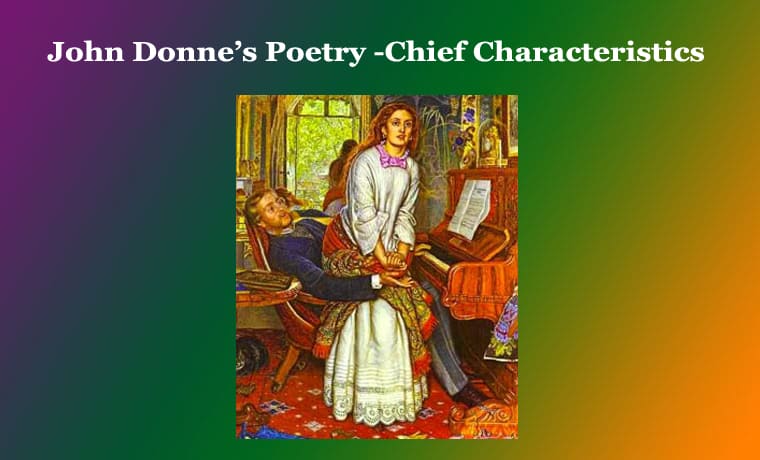John Donne’s Poetry-Chief Characteristics
John Donne’s Poetry-Chief Characteristics
John Donne’s Poetry-Chief Characteristics
Introduction:
Renowned in English literature, John Donne is a distinguished poet celebrated for his unique style and profound engagement with metaphysical themes. His poetic compositions unravel intricate philosophical concepts through distinctive metaphysical conceits and a juxtaposition of contrasting elements. Let’s delve into the primary characteristics that define John Donne’s Poetry.
Metaphysical Themes and Conceits:
Donne’s poetry distinctly explores profound metaphysical themes, employing extended and elaborate metaphors known as metaphysical conceits. In “A Valediction: Forbidding Mourning,” Donne utilizes the metaphor of a compass to symbolize the enduring connection between souls: “Our two souls therefore, which are one, / Though I must go, endure not yet / A breach, but an expansion, / Like gold to airy thinness beat.”
Juxtaposition of Opposing Elements:
Donne’s poetic brilliance is evident in his adept juxtaposition of opposing elements. Frequently intertwining the spiritual with the physical and the divine with the earthly, he creates a profound tension within his works. In “Batter my heart, three-person’d God,” he contrasts violent imagery with the yearning for spiritual renewal: “Batter my heart, three-person’d God, for you / As yet but knock, breathe, shine, and seek to mend.”
Innovative Use of Language and Wit:
A hallmark of Donne’s poetry lies in the innovative use of language and wit. His unconventional syntax and colloquial language set his work apart. Employing clever wordplay and unconventional phrasing, he creates thought-provoking and often humorous verses. In “The Flea,” he skillfully employs witty arguments to persuade his beloved: “It sucked me first, and now sucks thee, / And in this flea our two bloods mingled be.”
Exploration of Love and Eroticism:
Love, in its multifaceted dimensions, recurrently surfaces in Donne’s poetry. He delves into the intricacies of romantic and physical love, often intertwining them with spiritual and intellectual pursuits. In “The Good-Morrow,” Donne explores a profound and mature love: “My face in thine eye, thine in mine appears, / And true plain hearts do in the faces rest.”
Religious and Spiritual Exploration:
Donne’s works consistently mirror his religious and spiritual contemplations. His poems manifest his personal spiritual journey and struggles with matters of faith. In “Hymn to God, My God, in My Sickness,” he contemplates his relationship with the divine: “Thou’rt slave to Fate, chance, kings, and desperate men, / And dost with poison, war, and sickness dwell.”
Conclusion:
John Donne’s poetry serves as a testament to his intellectual depth, linguistic ingenuity, and profound exploration of the intricate facets of human existence. His ability to intricately weave metaphysical themes, juxtapose contrasting elements, and explore love, spirituality, and faith in a linguistically innovative manner solidifies his status as a leading figure in English poetic history. 0 0 0. John Donne’s Poetry
John Donne’s Poetry












